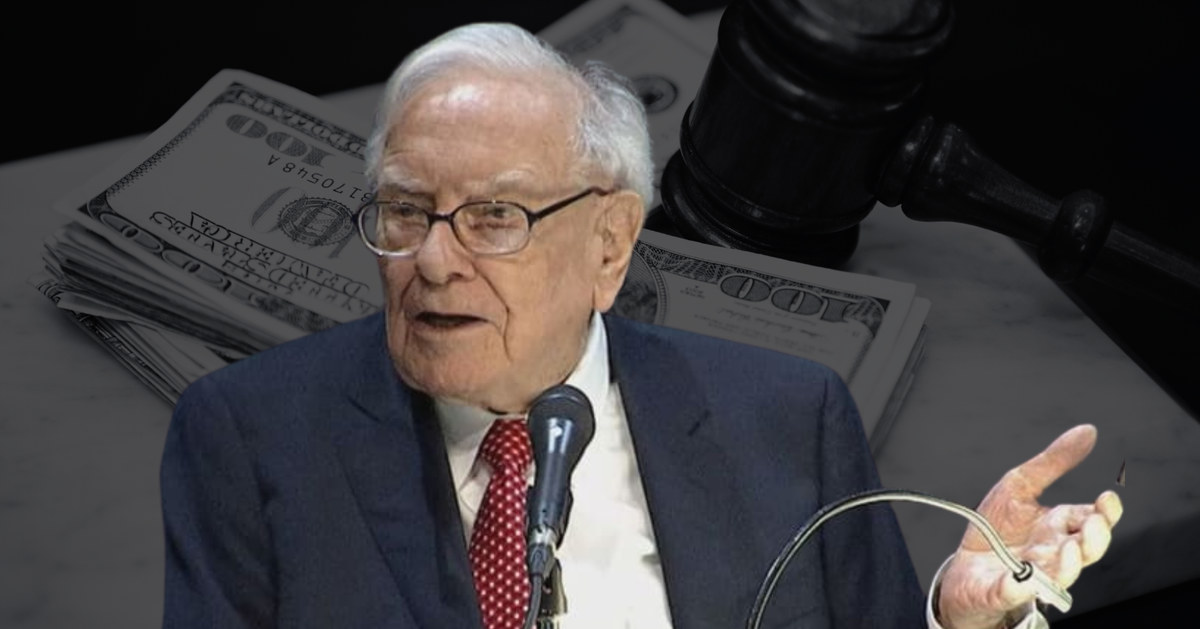Real estate is the most popular investment channel for many people. However, surprisingly, legendary investor Warren Buffett did not choose this as an investment channel to invest money in. Why is that?
There is no pricing inefficiency.
"Real estate is not a commodity. I think real estate tends to be priced correctly most of the time and it's hard to find times when it's mispriced," Warren Buffett once explained at Berkshire Hathaway's shareholder meeting.
The billionaire's investment philosophy is to invest in quality businesses that are trading at a significant discount to their intrinsic value. But real estate doesn't offer that many opportunities. He believes there aren't many opportunities to buy real estate that's significantly below its estimated value.
Real estate is easier to analyze than other businesses because it often has stable, clear cash flows. This makes mispricing less likely.
Of course, the market is not completely efficient. When the economy is in crisis, there are still real estate price drops, but they are quite rare.
No competitive advantage
Warren Buffett also avoids businesses where others have an advantage and he does not. He has said that Berkshire does not have any competitive advantage over professional real estate investors.
The real estate game is in the hands of real estate investment trusts, private companies that specialize in real estate. They hire top talent and have the best relationships in the industry. Small investors also often participate in the US real estate market through investing in the fund certificates of these trusts.
Meanwhile, Warren Buffett and his fund specialize in investing in stocks and listed businesses.
Tax obstacles
In the US, individual investors investing in real estate will be subject to personal income tax. However, when corporations and businesses other than real estate investment trusts (REITs) invest in this field, real estate will be taxed twice. Once at the corporate level and again when distributed to shareholders.

Real estate investment is costly in terms of management and operation compared to stocks (Photo: Tran Khang).
Costly management
Unlike stocks and bonds, real estate is not a passive investment. Real estate owners face many management issues from maintenance, operations, leasing to legal issues.
All this work comes at a cost in terms of time and money. When the investment scale is large, investors often optimize through a person or organization to manage the real estate.
Smart investors like Buffett stay away from investments that distract them from higher-return opportunities. For him, real estate falls into that category.
But there are exceptions.
Under certain conditions, Buffett is willing to invest in real estate, such as during a crisis or a huge opportunity from a sell-off.
For example, during the 1980s and 1990s crisis, Warren Buffett established Trust Corp. to buy the liquidated assets of failed thrifts, including thousands of real estate properties.
During this period, real estate was being sold off and buyers were scarce, and valuations became far from fundamentals. Buffett said that "real estate was very mispriced at that time."
Many outside investors, including Warren Buffett, have jumped into the fray. But outside of serious financial crises, mispricing opportunities of this kind are rare.
While he avoids investing directly in real estate, the billionaire occasionally invests in publicly traded real estate derivatives such as REITs.
This form of investment is often diverse and highly liquid.
This allows Buffett to get in and out quickly, unlike real estate. REITs are invested in the same way as stocks. However, they are still only a small part of Berkshire's portfolio.
Source




![[Photo] General Secretary To Lam receives Japanese Ambassador to Vietnam Ito Naoki](https://vstatic.vietnam.vn/vietnam/resource/IMAGE/2025/4/3/3a5d233bc09d4928ac9bfed97674be98)

![[Photo] Special relics at the Vietnam Military History Museum associated with the heroic April 30th](https://vstatic.vietnam.vn/vietnam/resource/IMAGE/2025/4/3/a49d65b17b804e398de42bc2caba8368)
![[Photo] Moment of love: Myanmar people are moved to thank Vietnamese soldiers](https://vstatic.vietnam.vn/vietnam/resource/IMAGE/2025/4/3/9b2e07196eb14aa5aacb1bc9e067ae6f)






















































































Comment (0)